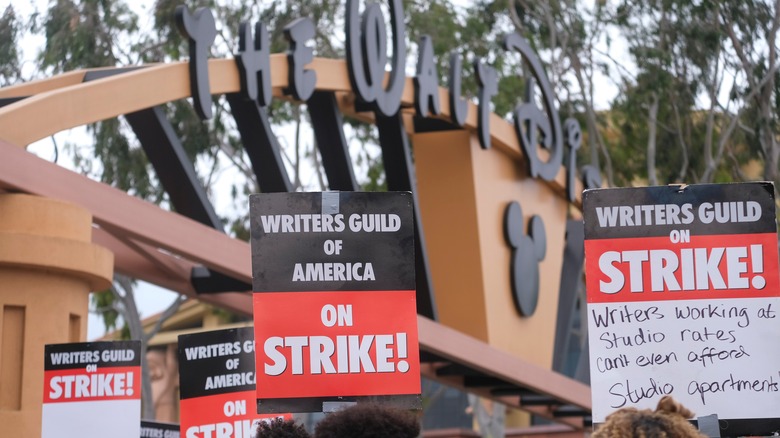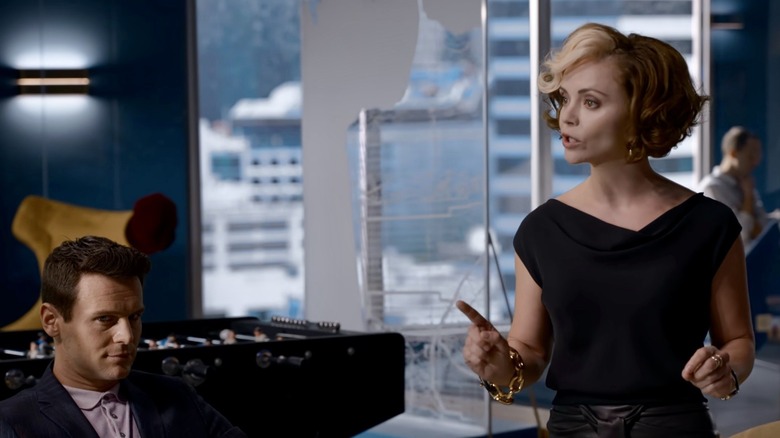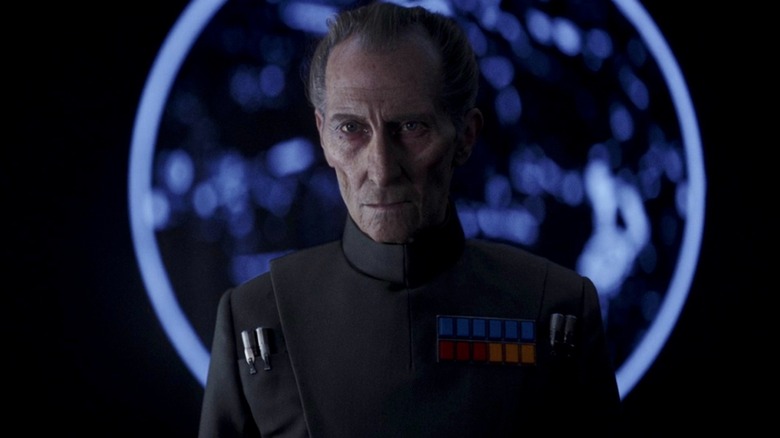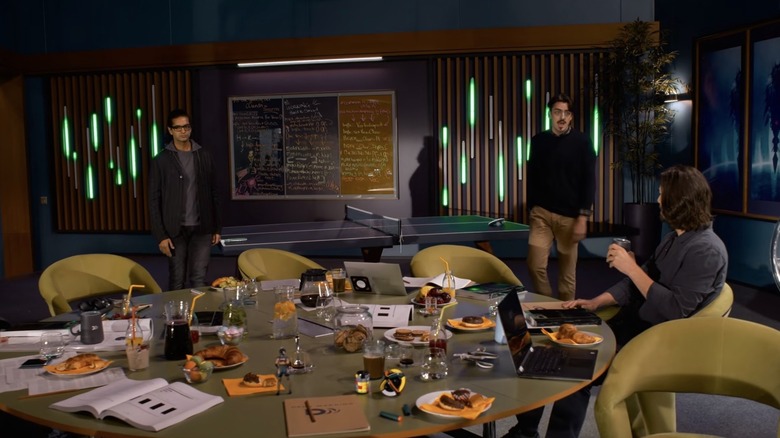Directors Guild Votes To Ratify Deal With Studios And Streamers, Avoiding Strike
Any last hopes that the Directors Guild of America might stand in solidarity with the Writers Guild of America while it's on strike in Hollywood just went out the window, as the DGA has now officially voted to ratify a new collective bargaining agreement between it and the AMPTP (Alliance of Motion Picture and Television Producers).
According to the DGA's press release issued June 23, the three-year contract was ratified by an "overwhelming margin" of 87%. That comes with the caveat that only 41% of eligible guild members — which includes assistant and associate directors, unit production managers, and stage managers — actually voted. Still, the guild was quick to emphasize that the turnout for this vote "exceeded any prior DGA ratification vote." As The Hollywood Reporter notes, even the WGA only had 36.7% of its members vote during its last reported turnout in 2017.
DGA President Lesli Linka Glatter said the new agreement "secures gains on wages, global streaming residuals, safety, diversity and creative rights that build for the future and impact every category of member in our Guild." However, some members expressed concern to THR that the deal's provision on generative AI "wasn't airtight enough," that the deal made no gains on the transparency of streaming data, and that the DGA "had squandered the unusual leverage provided by the writers' strike."
As we previously reported, the WGA is currently fighting for viewership-based residuals, which are contingent upon streamers being more transparent about viewership numbers (in the way of Nielsen ratings, which are compiled by an outside agency from TV networks). And while the DGA's agreement ensures "that generative AI cannot replace the duties performed by members," some creators, like "Spartacus" showrunner Steven DeKnight, have pointed out that generative AI is a "very specific term" and "there are several other kinds of AI tools."
'A stink of deviousness'
Before the DGA reached a tentative deal with the AMPTP earlier this month, there was talk of a possible situation in which three unions, including the Screen Actors Guild (SAG-AFTRA), might go on strike against studios at the same time. Speaking on behalf of the DGA, Lesli Linka Glatter acknowledged that the guild "didn't bargain in a vacuum," saying:
"We stand united with writers, actors and all crew members in our shared fight to move our industry forward. We support the actors who are in negotiations and the writers who remain on strike, and we will stand with the IA and Teamsters when they negotiate their agreement next year. We won't be satisfied until we all have fair contracts that reward us for our creative work — we must create a vibrant, sustainable industry that fairly values us all."
As writer-directors, many DGA members are, of course, "hyphenates" who double as WGA members, and not all of them are happy about the agreement. In another lengthy Twitter thread last week, Lilly Wachowski, co-writer and co-director of "The Matrix," wrote that the specific legal wording of the agreement "has a stink of deviousness" to it. According to IndieWire, the deal stipulates that studios "may not use [generative AI] in connection with creative elements without consultation with the Director or other DGA-covered employees."
All this means is that the studios have to consult directors before using generative AI. It doesn't mean the director has to sign off on it. So, in the same way that not all directors have final cut on their films, a studio could theoretically "consult" them in a perfunctory fashion, but then push forward on the use of AI without their approval. Some have also highlighted the potential for AI to act as mere "plagiarism software."
A SAG-AFTRA strike is still possible
Time for a bit of context. The 2007–08 WGA strike was effectively cut short when the DGA struck a similar deal that forced the WGA to make concessions (on streaming residuals) that would come back to bite them. While the AMPTP may be banking on a similar result this time, some WGA members had already foreseen that studios would try to use the same "divide and conquer" tactic.
While the DGA's deal establishes that "AI is not a person" (per Yahoo), its usage can affect people in film and television, and not just writers. This is something we've witnessed recently as AI performed a task that would normally be delegated to a human team by helping create the opening sequence of "Secret Invasion."
Like the WGA, the aforementioned Screen Actors Guild, which is currently in its own contract negotiations with studios, also has more to lose than the DGA, given the rise of deep fakes and digital likenesses (with the latter being used to perform necromancy, as it were, on dead actors in films like "The Flash" and "Rogue One: A Star Wars Story.") It's still possible SAG-AFTRA could go on strike, as it has a few times in the past — more often than the DGA, which only went on strike once in 1987 for a grand total of three hours and five minutes.
'This is about power'
It's very easy for the DGA or anyone to pay lip service to the idea of "standing united" and supporting the WGA when all they're really talking about is the abstract concept of writers. With the ratification of this deal, however, the DGA has shown that its respect and support for real writers — the people out there on the street picketing right now — has its limits. In effect, it has chosen to side with Streamberry, the "Black Mirror" stand-in for Netflix and other algorithm-fueled streamers and studios like Apple, Disney, and Warner Bros. Discovery, all of whom the AMPTP represents.
Another comparison would be Deus Machina, the focus-group-oriented video game company in "The Matrix Resurrections," which thinks movies are dead and cat videos are the future. On that note, I'll leave the last word to Lilly Wachowski, who explained further on Twitter why she, like "Borat" director Larry Charles, voted "no" on the DGA's deal:
"I feel like this is about power. I feel like a contingent of the DGA philosophically finds comfort in a hierarchical model where their position, the director, is holy. They alone have 'The Director's Vision.' They are 'Auteurs,' sitting atop the pyramid. And in this 'self-artistic idolatry' I believe Directors (#NOTALLDIRECTORS) in a small way, feel more aligned with CEOs. Atop the mountain. It is why in part, they negotiate in their own self-interest, rather than with the myriad of highly skilled professionals and artisans who are essential to make our particular kind of communal art."



